It should come as no surprise to anybody that the Japanese is at the forefront of showcasing societal commentary in their media. In particular, the themes that they like to explore are those surrounding generational issues, mental health issues, the aging population, and bullying, the lost and shattered dreams of their youth (due to a deflationary economy), just to name a few. Naturally, singlehood is also one of its problems, resulting in low population growth which further exacerbates the economy’s impending dearth. The prevailing narrative that is used to described singlehood is that of a personal lifestyle and a personal choice, shaped by personal circumstances. However, what is not often mentioned or shown is how much the development of society and its culture has very much a part to play in shaping that personal choice.
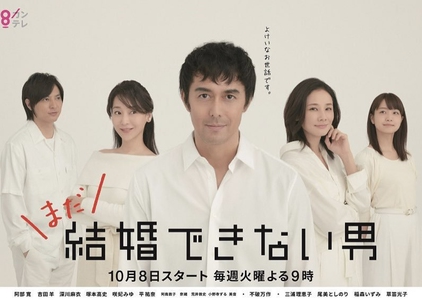
Source: https://drama.fandom.com/wiki/Mada_Kekkon_Dekinai_Otoko?file=Mada_Kekkon_Dekinai_Otoko.png
He Who Can’t Marry and Tokyo Bachelors just happen to be two of such Japanese dramas where the single life is featured as the core theme of the story, featuring bachelor(s) as the main character(s). He Who Can’t Marry (two seasons in total) tells the story of the life of bachelor Shunsuke Kuwano, a renowned architect who has built up his career and his name with it (as the pioneer of the “open kitchen” concept), but whom in stark contrast to his accomplishments, is socially awkward and unaware and often blunt to the point of being offensive. Proud of his solitary life and having a multitude of hobbies, he relishes being alone and often occupies himself with his various interests, and scoffs at the idea of marriage and the idea of building human relationships.
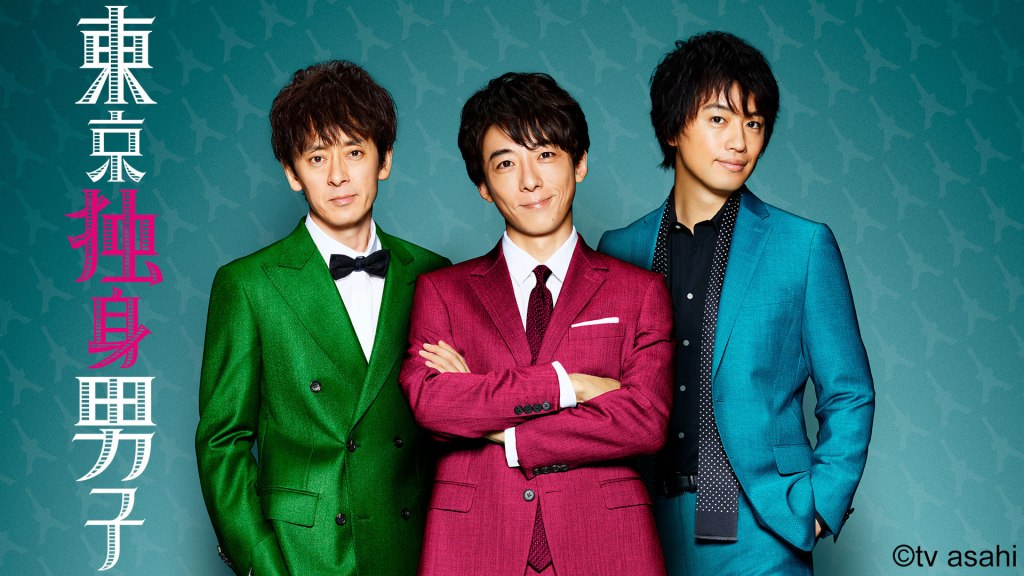
Source: https://www.wakuwakujapan.com/en/program/detail/wj0000005533/
Tokyo Bachelors features three main characters, Taro Ishibashi, Reiya Miyoshi and Kazuhiko Iwakura, known affectionately as the “Bachelors by Choice”. If these bachelors are credit ratings, they would be the equivalent of the triple A standard amongst the eyes of all females – accomplished, high income professionals who own swanky bachelor pads in the middle of downtown Tokyo. The main protagonist, Taro Ishibashi, works as a analyst at Tokyo “Daiwa” Bank; Reiya Miyoshi is a divorced dentist who has opened his own clinic in Tokyo and curiously, manages to sustain his business amidst the stiff competition and sky-high rent; Kazuhiko Iwakura is a partner of his own law firm and the oldest of the trio.
Through daily happenings and the people whom each of the main characters in both stories meet, such events and their relationships with these people eventually begin to impact their mindset and views on marriage.
Singlehood vs Marriage, Logic vs Emotions?
In both series, the starting premise is similar. All the bachelors enjoy the freedom of singlehood, relishing the freedom to do whatever they want and the lack of financial responsibilities and being the sole breadwinner of a family (which is practically synonymous with “settling down” in Japan). The question is whether there will be events that happen and/or people they meet that would change their minds.
In Japan, the historical cultural baggage that accompanies marriage and the start of a family has long often been criticised to be archaic. The progress of gender equality and women’s empowerment has surprisingly been slower paced than most of its developed country counterparts and even arguably, its Asian counterparts as well. As such, women’s role in society is still largely confined to the household – the glass ceiling at work is still pretty much in place for ladies in the workplace, and marriage spells the end of her career trajectory as she is expected to give up her job and devote all her efforts to maintaining the household and taking care of the children. The workplace and family time becomes a binary choice for her, and this also creates a disproportionate burden on the husband, who suddenly has one or more dependents on him to care for (loans on top of a few people’s daily expenses). It is no wonder that as much as women would not like to get married, the men have equally lesser incentive to get married.
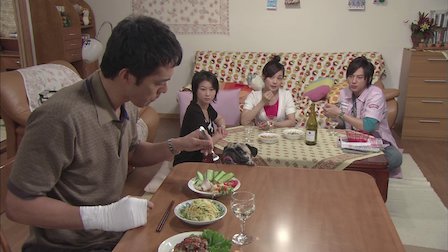
Source: Netflix
It is within this context that our main characters thrive, as marriage becomes an increasingly senseless decision. All the main characters are self-righteous in making this choice at the start of the story, and tout various – logical – reasons why their choice for the bachelorhood is the more intelligent way of choosing to live one’s life. In He Who Can’t Marry, Shunsuke often repeats this mantra and analysis to his gaggle of starry-eyed lady friends who often rebuke his analysis and criticising his ‘wet-blanket’ approach to life. In Tokyo Bachelors, the trio often reiterate this to each other, using Reiya Miyoshi’s nightware of an ex-wife as an example, to justify their lifestyle of partying (replete with plenty of wine, lack of real commitment with women).
Roles of the Female Characters in a Story About Men
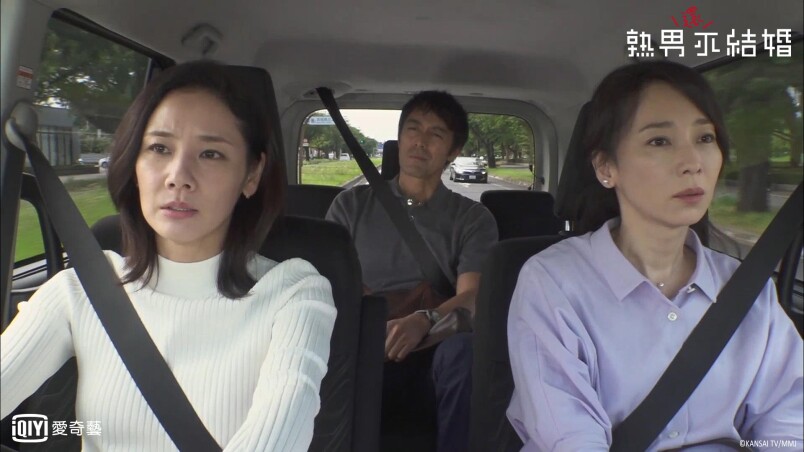
Source: https://www.marieclaire.com.tw/entertainment/tvshow/45525
The story also introduces potential love interests for the main characters. Interestingly, most of them are women who are on par with these main characters from a socio-economic sense, meaning they are equally as accomplished in their careers as these male characters and are high earners as well. For example, in He Who Can’t Marry (Season One), we have Yui Natsukawa, a female doctor who is Shunsuke’s equal in every way and who challenges him to let people into his life and to interact with and build relationships with the people around him instead of keeping to himself. In Tokyo Bachelors, one of the female romantic interests is a fellow lawyer in Kazuhiko Iwakura’s firm. Again, this is a realistic portrayal of the dating scene in Japan and arguably modern Asian society in general – where individuals of similar socio-economic status are inevitably drawn to each other as they would be equals in every manner. Moreover, the inclusion of such female characters also offer a glimpse into the female psyche of being highly accomplished, career women in their 30s to 40s and why they have remained single – mainly because they chose to prioritise their careers in a society where the choice between career and family seems to be mutually exclusive.
For the other female characters in the story, their existence is purposeful – usually as a catalyst that enables growth and self realisation for the main characters, whether in terms of their views and opinions on romantic relationships and human relationships. In He Who Can’t Marry, it is clear that through Shunsuke’s repeated interactions with these women, he learns to relate to and interact with other people in a more socially aware manner. Even though he rubs people off the wrong way at the beginning, the people (including these female characters) gradually learn to appreciate the kindness underneath his gruff exterior, and Shunsuke in turn learns to be more empathetic and more sensitive to the emotions of the people around him. Such character development is noticeable though subtle, and masterfully worked upon each episode. There is no sudden change, but it enables the audience to look back from the last episode and feel a swell of pride for Shunsuke for having come so far since the first episode.
On the other hand, Tokyo Bachelors takes a decidedly more romantic approach to the life lessons that the bachelor trio learns. Taro Ishibashi has an ex-girlfriend to contend with, Reiya Miyoshi has an ex-wife with unresolved issues, and Kazuhiko Iwakura is thrown into a very real life situation which forces him to look at the concept of marriage seriously. As they realise their past mistakes, they grow to realise what they truly need from life and what they are really looking for in a lifelong partner, which overturns their previous convictions on the matter.
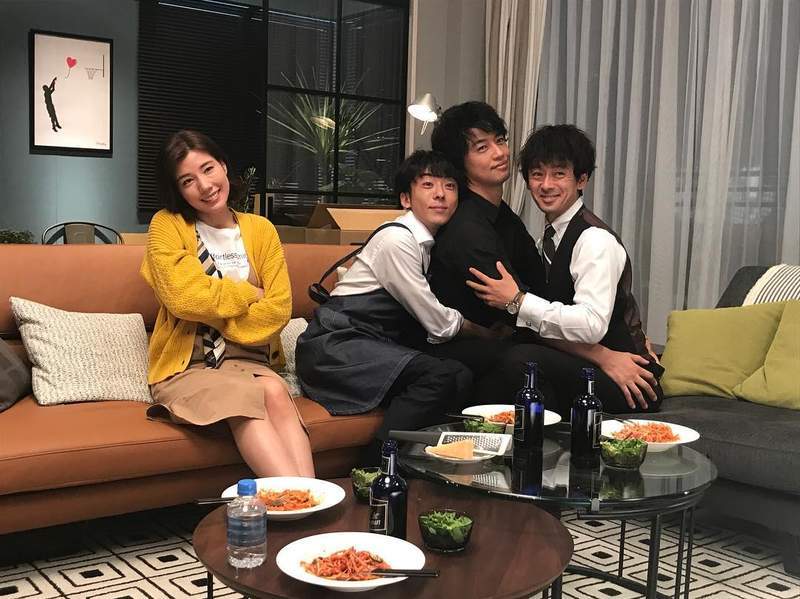
Source: https://k.sina.cn/article_6770237875_19389a1b300100gmy6.html
While both dramas are comedies, He Who Can’t Marry arguably tries harder in incorporating characteristics in its main character which explain, logically, why he is somebody who “can’t get married, ever”, and those characteristics are also a very realistic portrayal of some of the single men in their thirties and forties and the kinds of people they inevitably come. Nevertheless, He Who Can’t Marry somehow still manages to make its main character lovable as his kind side gradually shows. In contrast, Tokyo Bachelors doesn’t take itself as seriously, and focuses more on drawing out the comedic dynamic amongst our three adorable main characters, on making its audience laugh, and following the spirit of the show – of being a ‘feel-good’ sitcom.
Interestingly, the fates of each of these bachelors are very different in the stories. Some find romance, some don’t. It is interesting how each of their endings serve to portray different grains of the same truth. The truth is when it comes to romance as with life in general, it is a bit of a Russian roulette. Some relationships don’t work out and there is nothing wrong with being single that way, some relationships enable one to find what one really cares about (which may not be finding a partner), and some relationships enable one to find who one really cares about and/or the qualities of a partner one is really seeking. The point however is that all of them end up achieving a better understanding of the self and what he is seeking from life, and essentially that is what the stories are really trying to show.
Conclusion
Both stories send very powerful messages of some realistic reasons and justifications for singlehood, and presents both the case for singlehood and marriage as evenly as they can and in as light-hearted a manner as possible. While one can easily breeze through both series, it definitely does yield more if one sits down to think about the messages behind each of them. Whether you are looking for a series that is a fresh breath of air from the usual rhetoric, or you are a happy single who wants to find something that finally does not advocate marriage as the predominant end goal of one’s romantic life, do give any of these two series a go, and you may be pleasantly surprised.


